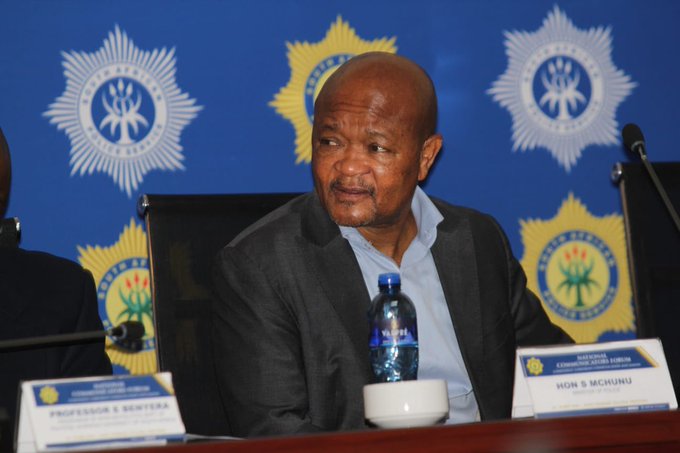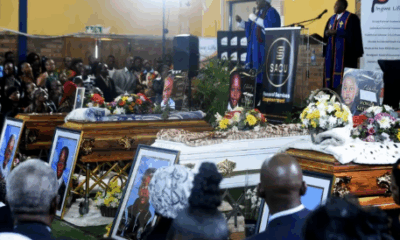News
SAPS Pays Over R5 Million to Suspended Officers While Crime Surges

While stations suffer staff shortages, taxpayers fund salaries for 11 officers on paid leave
South Africans grappling with rising crime and sluggish police response times may be shocked to learn that R5 million of their taxes have quietly gone to fund salaries of 11 suspended police officers—none of whom have worked a single day during their suspension.
The revelation came from Police Minister Senzo Mchunu, who responded to parliamentary questions from Build One South Africa (BOSA) leader Mmusi Maimane. As of May 16, 2025, all 11 SAPS members remain on paid suspension, with one lieutenant general racking up a salary bill of R3.4 million alone, despite being suspended since July 2022.
Top Brass, Top Bill
The two most expensive suspensions involve high-ranking lieutenant generals, with one benched since July 8, 2022, and another since June 14, 2024. Together, these two have cost SAPS R4.57 million, raising eyebrows about the delay in disciplinary processes and the apparent lack of urgency in finalising their cases.
Lower-ranked members, including sergeants and constables, have been suspended more recently, in early 2025, with individual salary costs ranging between R35,000 and R57,000.
While some might argue that due process is essential, the public is less forgiving about the dragging timelines, especially when ordinary police stations across the country are desperate for manpower.
Vacancies Mount, Discipline Stalls
Minister Mchunu confirmed that no unfunded vacancies exist within SAPS. However, that doesn’t mean the service is fully staffed. In fact, SAPS is currently battling with over 11,700 open posts, particularly in detective services, visible policing, and public order units, core functions in the fight against crime.
And yet, officers under investigation continue to receive full salaries, with little transparency or urgency around disciplinary proceedings.
This disconnect between vacant boots on the ground and fully-paid but inactive personnel is striking a nerve with the public and opposition parties alike.
Security Concerns vs Accountability
When pressed for deployment numbers, Mchunu cited “operational risks” as a reason for withholding data. While it’s understandable that SAPS wouldn’t want to expose tactical vulnerabilities, critics argue that basic accountability shouldn’t come at the expense of security.
“We’re told there are no unfunded vacancies, yet our local police station is constantly short-staffed,” said one resident from the Eastern Cape. “If they’re paying officers not to work, something’s broken.”
Social media hasn’t held back either, with many users slamming the cost of inaction:
“We’ve paid R5 million for a ghost squad? Unbelievable,” one X user posted.
The Bigger Problem: Bureaucracy and Bottlenecks
The issue isn’t just the R5 million already spent. It’s the structural problem behind it slow or indefinite disciplinary proceedings that leave officers in limbo and SAPS footing the bill.
This isn’t a new challenge. Public sector departments across South Africa, from education to health, have faced criticism for paying suspended employees for years, often without resolution. In the case of SAPS, however, the stakes are higher. These aren’t just HR disputes, they involve law enforcement at a time when violent crime is surging.
Where Do We Go From Here?
If the government hopes to restore public faith in policing, it must not only fill critical vacancies but also reform its suspension and disciplinary protocols.
Swift, fair, and transparent action should be the norm, not the exception. Taxpayers, already burdened by economic uncertainty and crime fatigue, deserve a police service that prioritises both service delivery and internal accountability.
{Source: IOL}
Follow Joburg ETC on Facebook, Twitter , TikTok and Instagram
For more News in Johannesburg, visit joburgetc.com



























